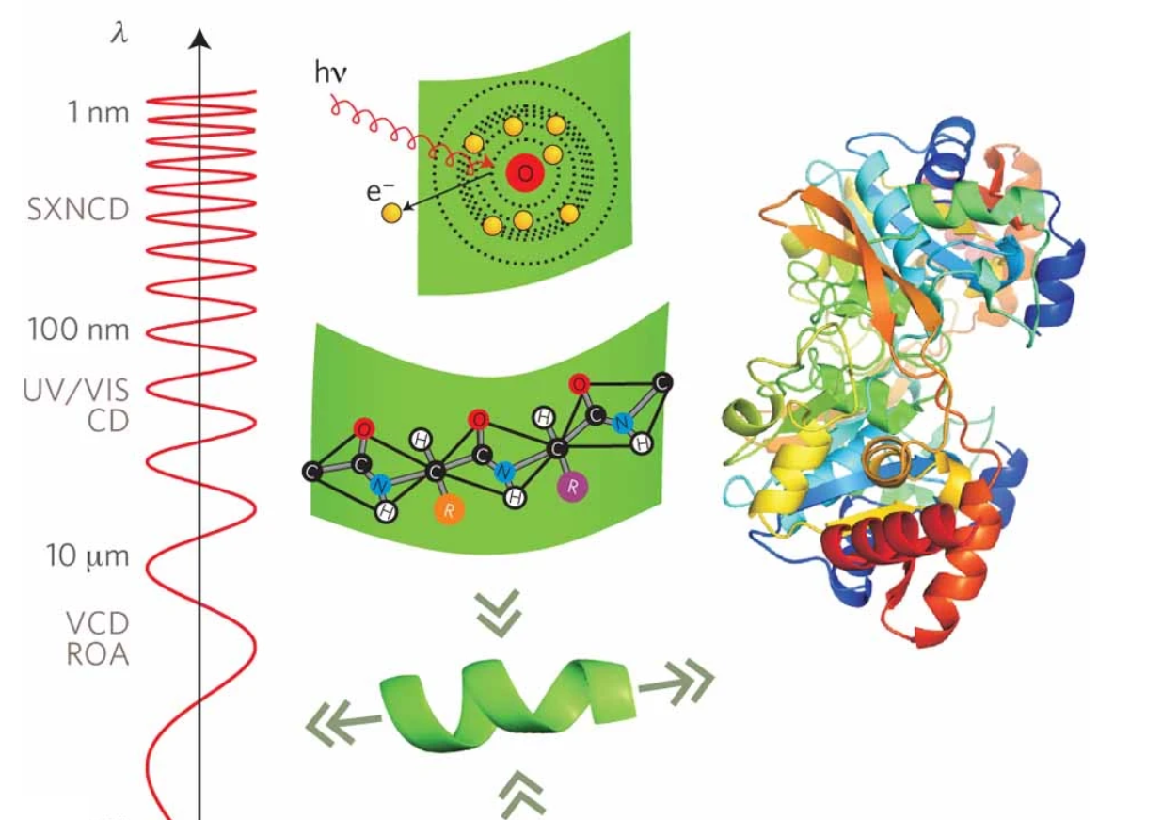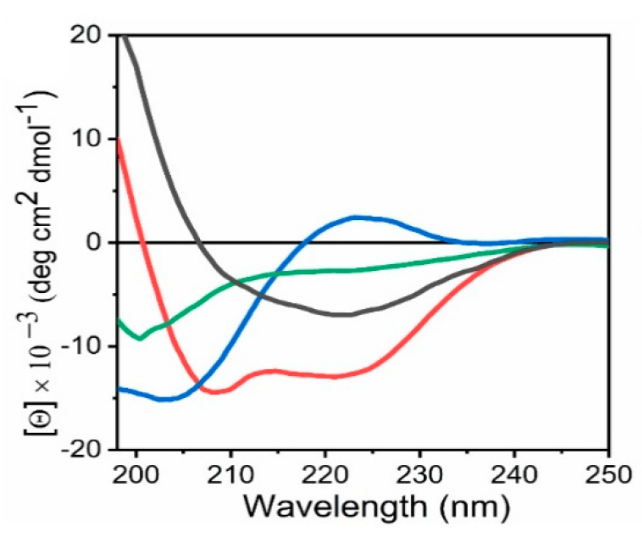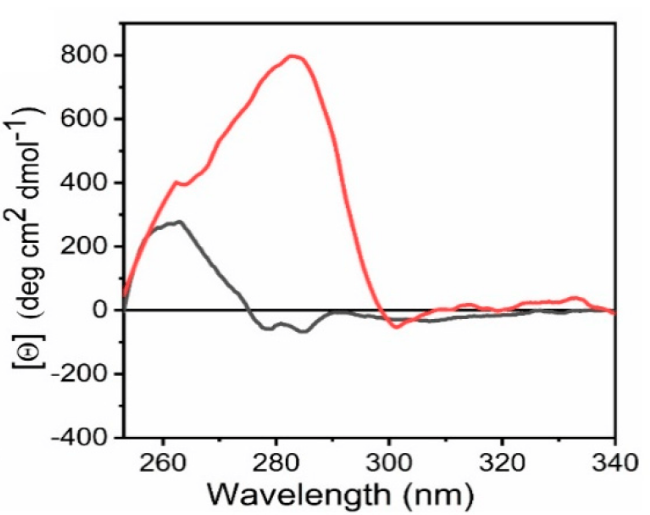Circular Dichroism (CD) Spectroscopy Service
- Protein Secondary Structure Analysis
- Protein Stability Studies
- Protein-Ligand Interactions
- Biopharmaceutical Quality Control
- Vaccine and Antibody Research
- Type of Samples: We accept various sample types, including but no limited to proteins.
- Storage Conditions: Samples should be shipped on dry ice.
Circular Dichroism (CD) Spectroscopy Service is a specialized analytical solution designed to provide detailed insights into the secondary structures and conformational changes of biomolecules, particularly proteins and nucleic acids. Circular Dichroism (CD) Spectroscopy Service is essential for researchers aiming to understand the structural properties of biomolecules, assess their stability, and investigate interactions with other molecules.

Figure 1. Schematic Representation of the Circular Dichroism Instrument Configuration
The principle behind Circular Dichroism (CD) Spectroscopy Service is based on the differential absorption of left-handed and right-handed circularly polarized light by chiral molecules. Chiral molecules, such as proteins and nucleic acids, possess non-superimposable mirror images, leading to unique optical activity. When circularly polarized light passes through a solution containing these molecules, they absorb the left and right circularly polarized components to different extents. This differential absorption results in a CD spectrum, which provides valuable information about the molecule's secondary structure elements, such as alpha-helices, beta-sheets, and random coils.

Figure 2. Schematic of Circular Dichroism Principles
CD spectroscopy is highly sensitive to conformational changes, making it an indispensable tool for monitoring protein folding, stability under varying environmental conditions (e.g., pH, temperature, ionic strength), and ligand-binding interactions. By analyzing the CD spectra, scientists can gain insights into the mechanisms of action and functionality of biomolecules. Circular Dichroism (CD) Spectroscopy Service allows researchers to detect subtle structural alterations that may affect biological activity, facilitating studies in drug design, protein engineering, and quality control of biopharmaceuticals.
Service at MtoZ Biolabs
MtoZ Biolabs offers a comprehensive Circular Dichroism (CD) Spectroscopy Service tailored to meet the diverse needs of researchers in structural biology, biochemistry, and pharmaceutical development. Our services encompass a wide range of CD spectroscopy techniques to provide detailed insights into the structural and conformational properties of biomolecules. We provide the following types of CD spectroscopy services:
1. Far-UV CD Spectroscopy
Far-UV CD Spectroscopy focuses on the wavelength range of 190–250 nm and is primarily used to analyze the secondary structures of proteins, such as alpha-helices and beta-sheets. This technique helps in understanding protein folding, stability, and conformational changes under different environmental conditions.
2. Near-UV CD Spectroscopy
Operating in the 250–320 nm range, Near-UV CD Spectroscopy provides insights into the tertiary structure of proteins. It examines the environment of aromatic amino acids and disulfide bonds, aiding in the study of protein folding, side-chain interactions, and conformational dynamics.
3. Visible CD Spectroscopy
Visible CD Spectroscopy covers wavelengths from 320–700 nm and is useful for investigating chromophoric molecules and metal-containing proteins. This method allows for the characterization of coordination complexes, ligand-binding interactions, and electronic transitions within biomolecules.
4. Near-Infrared Circular Dichroism
Near-Infrared Circular Dichroism explores overtones and combination bands of molecular vibrations. This technique provides unique information about the chiral properties and conformations of molecules not accessible in the UV-visible region, enhancing the scope of our Circular Dichroism (CD) Spectroscopy Service.
5. Vibrational Circular Dichroism (VCD)
VCD measures the differential absorption of left and right circularly polarized infrared light. It offers detailed information on the absolute configuration, stereochemistry, and chiral centers of organic molecules, making it invaluable for studying small molecules, peptides, and nucleic acids.
Service Advantages
1. Advanced Analysis Platform: MtoZ Biolabs established an advanced Circular Dichroism (CD) Spectroscopy Service platform, guaranteeing reliable, fast, and highly accurate analysis service.
2. One-Time-Charge: Our pricing is transparent, no hidden fees or additional costs.
3. Customizable Service: Personalized service to meet various research needs.
4. Fast Turnaround: The process from sample handling to report generation is efficient, shortening the analysis cycle.
Applications
Circular Dichroism (CD) Spectroscopy Service is employed extensively across various fields. The applications include:
Sample Submission Suggestions
*Note: Please contact us if you have any special requirements or need assistance with your sample preparation.
Sample Results
1. Representative Far-UV CD spectra of the characteristic secondary structure motifs detected in proteins and peptides: random-coil (green), α-helix (red), β-sheet (black) and Polyproline II (blue).

Pignataro, M. F. et al. Molecules. 2020.
2. Near-UV–CD spectra of two different proteins, one containing tryptophan and tyrosine (red) and the other only tyrosine (black)

Pignataro, M. F. et al. Molecules. 2020.
FAQ
Q: How to Ensure Accurate CD Measurements?
1. Proper Sample Preparation: Use pure, well-dissolved samples without particulates to prevent light scattering.
2. Instrument Calibration: Regularly calibrate the CD spectrometer with standard references.
3. Optimal Instrument Settings: Select appropriate wavelengths, bandwidths, and scan rates for your sample.
4. Temperature Control: Maintain consistent temperature to prevent structural changes in the sample.
5. Baseline Correction: Perform baseline scans with buffer alone and subtract from sample data.
6. High-Quality Cuvettes: Use clean, scratch-free quartz cuvettes appropriate for the wavelength range.
MtoZ Biolabs, an integrated Chromatography and Mass Spectrometry (MS) Services Provider, provides advanced proteomics, metabolomics, and biopharmaceutical analysis services to researchers in biochemistry, biotechnology, and biopharmaceutical fields. Our ultimate aim is to provide more rapid, high-throughput, and cost-effective analysis, with exceptional data quality and minimal sample consumption. For more information about our Circular Dichroism (CD) Spectroscopy Service, please contact us.
MtoZ Biolabs, an integrated chromatography and mass spectrometry (MS) services provider.
Related Services
Protein Structure Identification Service
Protein Secondary Structure Analysis Service
Protein Circular Dichroism Analysis Service
How to order?







